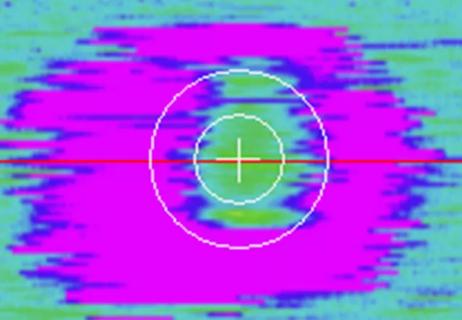Tag debug info: client: {"assets":{},"datasets":{},"live":{},"projects":{},"users":{},"observable":{"assets":{},"datasets":{},"live":{},"projects":{},"users":{}}} Now: 1770524768959 Cache Key: cqdTagPageBySlug:hydroxychloroquine fetchCache[cqdTagPageBySlug:hydroxychloroquine].expirationTime: falsey fetchCache[cqdTagPageBySlug:hydroxychloroquine]. seconds remaining: falsey All fetchCache expiration times: -- Key: cqdNotFoundPage, seconds remaining: 7380 -- Key: cqdTagPageBySlug:facial-weakness, seconds remaining: -2131 -- Key: cqdPostsByTag:cqd-migrated-tag-24034,1,10, seconds remaining: -2062 -- Key: cqdTagPageBySlug:fellowship-interviews, seconds remaining: -941 -- Key: cqdPostsByTag:cqd-migrated-tag-26982,1,10, seconds remaining: -856 -- Key: cqdTagPageBySlug:interactive-metronome, seconds remaining: -211 -- Key: cqdPostsByTag:cqd-migrated-tag-2258,1,10, seconds remaining: -124 -- Key: cqdTagPageBySlug:thomas-gildea, seconds remaining: 122 -- Key: cqdPostsByTag:cqd-migrated-tag-1009,1,10, seconds remaining: 198 -- Key: cqdTagPageBySlug:body-modifications, seconds remaining: 1814 -- Key: cqdPostsByTag:cqd-migrated-tag-25205,1,10, seconds remaining: 1885 -- Key: cqdTagPageBySlug:partner-3, seconds remaining: 2325 -- Key: cqdPostsByTag:cqd-migrated-tag-20280,1,10, seconds remaining: 2392 -- Key: cqdTagPageBySlug:lesbian, seconds remaining: 2805 -- Key: cqdPostsByTag:cqd-migrated-tag-18074,1,10, seconds remaining: 2879 -- Key: cqdTagPageBySlug:sleep-latency, seconds remaining: 3009 -- Key: cqdPostsByTag:cqd-migrated-tag-26830,1,10, seconds remaining: 3083 -- Key: cqdTagPageBySlug:diagnostic-delay, seconds remaining: 3850 -- Key: cqdPostsByTag:cqd-migrated-tag-26374,1,10, seconds remaining: 3905 -- Key: cqdTagPageBySlug:suprapubic-hernia, seconds remaining: 6037 -- Key: cqdPostsByTag:cqd-migrated-tag-22007,1,10, seconds remaining: 6106 -- Key: cqdTagPageBySlug:biologic-therapy, seconds remaining: 6540 -- Key: cqdPostsByTag:cqd-migrated-tag-19643,1,10, seconds remaining: 6610 -- Key: cqdTagPageBySlug:aap19, seconds remaining: 6849 -- Key: cqdPostsByTag:cqd-migrated-tag-21324,1,10, seconds remaining: 6916 -- Key: cqdTagPageBySlug:precision-trial, seconds remaining: 7380 -- Key: cqdPostsByTag:cqd-migrated-tag-4948,1,10, seconds remaining: 7445 -- Key: cqdTagPageBySlug:pelvis, seconds remaining: 8406 -- Key: cqdPostsByTag:cqd-migrated-tag-25556,1,10, seconds remaining: 8470 conditions: -- false, -- NA, -- NA, -- NA -- false Cache miss for key cqdTagPageBySlug:hydroxychloroquine - retrieving from Sanity CCCache.dataFetchCount: 20126 Cache cleanup seconds remaining: 27380
Advertisement
Advertisement
PATCH trial suggests role for drug in anti-SSA/Ro-exposed pregnancies
New reviews offer insights on immunotherapies
Research shows ellipsoid zone mapping’s potential
Advertisement
Cleveland Clinic is a non-profit academic medical center. Advertising on our site helps support our mission. We do not endorse non-Cleveland Clinic products or services. Policy
Rendered: Sun Feb 08 2026 04:26:09 GMT+0000 (Coordinated Universal Time)
9500 Euclid Avenue, Cleveland, Ohio 44195 |
800.223.2273 | ©
2026 Cleveland Clinic. All Rights Reserved.


